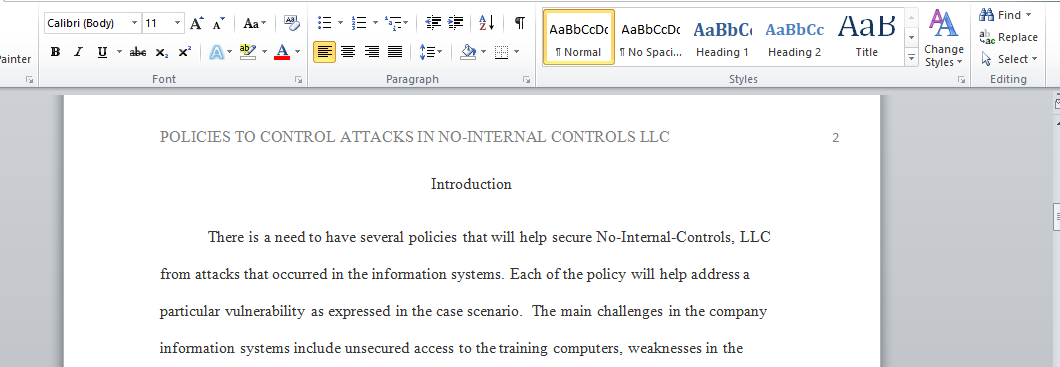The following scenario is based on an actual attack deconstructed at a seminar I attended earlier this year.
The following scenario is based on an actual attack deconstructed at a seminar I attended earlier this year. The names and locations have been removed to preserve the privacy of the organization in question.
Background:
No-Internal-Controls, LLC is a mid-sized pharmaceutical company in the Midwest of the US employing around 150 employees. It has grown over the past decade by merging with other pharmaceutical companies and purchasing smaller firms.
Recently No-Internal-Controls, LLC suffered a ransomware attack. The company was able to recover from the attack with the assistance of a third party IT Services Company.
Attack Analysis:
After collecting evidence and analyzing the attack, the third party was able to recreate the attack.
No-Internal-Controls, LLC has a number of PCs configured for employee training
These training computers use generic logins such as “training1”, “training2”, etc. with passwords of “training1”, “training2”, etc.
The generic logins were not subject to lock out due to incorrect logins
One of the firms purchased by No-Internal-Controls, LLC allowed Remote Desktop connections from the Internet through the firewall to the internal network for remote employees
Due to high employee turnover and lack of documentation none all of the IT staff were aware of the legacy remote access
The main office has only a single firewall and no DMZ or bastion host exists to mediate incoming remote desktop connections
The internal network utilized a flat architecture
An attacker discovered the access by use of a port scan and used a dictionary attack to gain access to one of the training computers
The attacker ran a script on the compromised machine to elevate his access privileges and gain administrator access
The attacker installed tools on the compromised host to scan the network and identify network shares
The attacker copied ransomware into the network shares for the accounting department allowing it spread through the network and encrypt accounting files
Critical accounting files were backed up and were recovered, but some incidental department and personal files were lost
Instructions:
You have been hired by No-Internal-Controls, LLC in the newly created role of CISO and have been asked to place priority on mitigating further attacks of this type.
- Suggest one or more policies that would help mitigate against attacks similar to this attack
- Suggest one or more controls to support each policy
- Identify each of the controls as physical, administrative, or technical and preventative, detective, or corrective.
- Keep in mind that No-Internal-Controls, LLC is a mid-sized company with a small IT staff and limited budget
- Do not attempt to write full policies, simply summarize each policy you suggest in one or two sentences.
- Clearly indicate how each policy you suggest will help mitigate similar attacks and how each control will support the associated policy.
Answer preview:
Words:658

